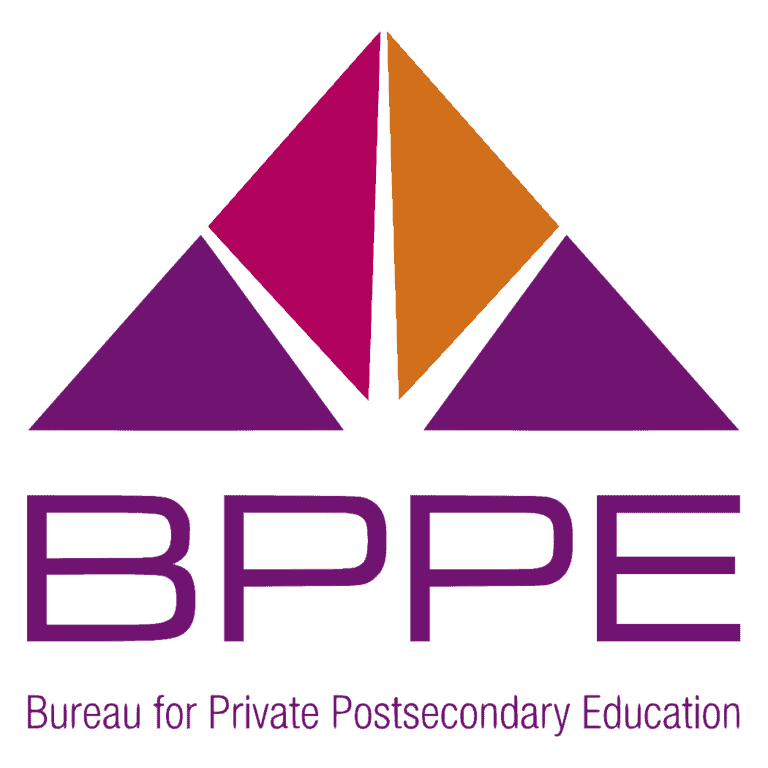Get the Skills to Become a Communication and Technology Professional

18-Month* Master of Science in Communication and Technology (MSCT) Program
In the digital age, the ability to effectively communicate using technology is not just a skill, it’s a necessity. Communication and technology professionals are responsible for understanding, analyzing, and utilizing tools to facilitate communication in various settings.
As the Internet evolves in our lives, communication technology networks become increasingly vital. The Master of Science in Communication and Technology (MSCT) program offers in-depth knowledge of the digital technologies and techniques needed for secure and robust communication services.
Next Start Date: Aug 4thMaster of Science in Communication and Technology (MSCT) San Diego Global Knowledge University - San Diego Campus 1095 K Street, Suite B San Diego California USA 92101 This program provides in-depth knowledge about the technologies and techniques required to meet the societal needs of secure, smart, and robust communication networks and services.https://sdgku.edu/wp-content/uploads/2014/11/AdobeStock_533346428.jpegSan Diego Global Knowledge University
The best way to see if San Diego Global Knowledge University is the right fit for you is to book an Admissions Appointment. You’ll meet with an Admissions Representative who will give detailed program and schedule information. Book an Admissions Appointment or Get more info.
Becoming a Skilled Communication and Technology Professional
The MSCT program will equip you with essential tools to understand and evaluate communication technology methods, focusing on globalization, emerging technology, telecommunications, collaborative networks, and managerial strategies. You will develop the ability to bridge the gap between business needs and technical solutions, preparing you to address current and future technology trends.
Our research-oriented curriculum prepares you for advanced studies or roles in technology-related professions emphasizing communication technology, leading to careers in doctoral studies, higher education teaching, and various professional fields.
Thriving in Today’s Globalized Perspective
Organizations are experiencing increased global competition due to a surge in communication technologies. As the world becomes more interconnected, those who grasp the dynamics of communication and technology will have a strategic advantage in tackling new challenges. This program aims to prepare you with a global mindset to thrive in today’s rapidly changing business environment.
Build Communication and Technology Management Skills
The MSCT curriculum focuses on participatory and collaborative learning, providing students with a strong foundation in building human and technological networks in global and international contexts. It offers hands-on experience in distance collaboration and remote project management through real-world projects that benefit individuals, society, and organizations. Each course contributes to a comprehensive perspective, preparing students to become effective innovators in global organizations.
Get Program Details Now!Apply Online
Is an MS in Communication & Technology Degree Right For You? Find Out! Take the SDGKU “Master’s Degree Readiness Quiz”
This fun, online quiz takes 3 minutes to complete and you'll get a personalized report. Identify your strengths and social style plus the training and positions you're best suited for. Get Your Master’s Degree Readiness Score Now >>
Career Opportunities
The MSCT program prepares students for careers across many sectors, including business, non-profits, government, and organizations that use communication technology. Graduates can pursue roles in consultancy, management, and decision-making within technology-based organizations.
Students gain in-demand skills valued in the telecommunications and software industries, as well as by service providers, consulting firms, universities, and research institutes. Some may even have the chance to start their own technological ventures based on their acquired skills.
100% Online and Hybrid Options Available
Our program is designed to fit the needs of busy, adult learners, so you can choose between our 100% online or hybrid learning option. Many of our students are raising families and some continue to work while going to school. We will help you choose a schedule that works for you.
- Analyze the impact of technology on globalization.
- Evaluate the concept of distance activity competence in networked organizations to maximize performance.
- Analyze the systems approach to implement appropriate new technologies to solve the increasingly complex problems of organizations with a global perspective.
- Evaluate the key dimensions of client service and global competitiveness for networked organizations.
- Develop technology- based strategies to increase performance and global market outreach of organizations.
Students enrolled in this degree program must achieve a minimum cumulative grade point average (CGPA) of 3.0 to graduate. Applicants for this degree program must submit the following documents:
1. The corresponding SDGKU online Application for Admission and supporting documentation; and
2. Official transcripts of undergraduate record of a relevant bachelor’s degree from an institution approved by the State of California Bureau for Private Postsecondary and Vocational Education, public or private institution of higher learning accredited by an accrediting association recognized by the United States Department of Education, or any institution of higher learning, including established foreign institutions, if the institution offering the bachelor’s degree program documents that its minimum required courses of study, units and content rigor are the same as those of a bachelor’s degree from an institution approved by the Council or accredited by an accrediting association recognized by the United States Department of Education; and
3. A certified copy of bachelor’s degree diploma.
- Analizar el impacto de la tecnología en la globalización.
- Crear una estrategia de actividades a distancia para maximizar el rendimiento de la organización.
- Aplicar el enfoque sistémico para resolver problemas en un contexto global.
- Evaluar las dimensiones clave para servicio al cliente y competitividad en red.
- Desarrollar estrategias basadas en la tecnología para aumentar el rendimiento y el alcance del mercado global de las organizaciones.
- Mapa Curricular incluyendo objetivos de aprendizaje
- Descripción de actividades capstone
- Curriculum del programa
- Lista de libros y materiales de curso requeridos
Details
- This program is offered in both online and hybrid options.
- There is no difference in cost between the two options and there are no additional associated costs for taking the hybrid option.
- The curriculum for both options is the same in terms of academic requirements.
- The hybrid option is offered to students who would prefer to attend in-residence sessions periodically.
- Non-local students are responsible for their own travel expenses and lodging.
Modalities
Online students study and attend class remotely for 100% of their curriculum, while hybrid students are required to both study online and attend in-residence sessions offered at the SDGKU campus.
Scheduling
In-residence sessions are scheduled prior to start date of a program or course.
Enrollment
If you are interested in enrolling in a hybrid program, please reach out to our admissions representatives for details on scheduled in-residence sessions dates and times.

Lead Faculty: Miguel Cardenas, Ph.D.
Dr. Miguel A. Cardenas is Founder and President of San Diego Global Knowledge University and Lead Faculty of the MSCT program. His background in communication and technology goes back to the origins of the Internet, where he studied under the “father of the internet”, Dr. Leonard Kleinrock at the UCLA School of Engineering and Applied Sciences. Dr. Cardenas was also a member of the distinguished “Club of Rome” global modeling project. Later he created one of the first and largest educational program networks that spanned over 30 countries in the Americas, Europe and Asia. Dr. Cardenas is passionate about global communication. His education spans subjects such as electrical engineering, operations research, and systems engineering. He enjoys cross country running and playing tennis on his time off.
Course Descriptions
The process of globalization is presented as a series of economic, technological, social and political phenomena affecting society worldwide. The explosion of telecommunications and information technologies is described and analyzed in the context of an increasingly interconnected global society or “village” with emphasis on the traditional communications media and professional activity.
3 credit hours | Prerequisite: none
This course presents the growing phenomena of distance activity and networked collaboration within organizations in education, business, government and civil society, with emphasis on the human competencies required to perform more effectively at a distance with optimal use of available technologies. Promotion, technology management, administration and logistic tasks involved in distance activity are presented and discussed.
3 credit hours | Prerequisite: CT 501
This course presents the human and functional competencies required to train and develop professionals of distance activity and networked collaboration in any organization or community of interest, including train-of-trainer skills and human/emotional skills to communicate and convince others of the many benefits of this growing collaborative modality ideally suited for “networked” organizations.
3 credit hours | Prerequisite: CT 502
This course presents the human and technical knowledge and abilities needed to plan, develop and implement distance activity infrastructure and collaborative systems in organizations within education, business, government and civil society. The sequential use of technologies to optimize networked collaboration will be presented, along with the systems planning and development strategies to maximize benefits, costs and outcomes.
3 credit hours | Prerequisite: CT 503
This course presents the concept and process of visioning within organizations and communities of interest in the context of the New Economy and the globalized environment we face today. Strategies and methods for implementing strategic visioning programs are presented and compared, including the use of intuition and multicultural interpretations of risks and scenario analysis. Visioning for communications professionals as related to technology development and usage will be discussed and analyzed.
3 credit hours | Prerequisite: CT 504
Currently available telecommunications technologies and applications are presented and discussed for education, business, government and civil society. Satellite, microwave, digital telephony and Internet technologies are analyzed in terms of strengths and weaknesses. Concepts of modality, media and technology in the context of interactive communication processes are defined and discussed, emphasizing the “global electronic highway” evolving worldwide today.
3 credit hours | Prerequisite: CT 505
The telecommunications industry is analyzed in historical perspective and in the context of the globalized environment facing education, business and government today. Technology management and evaluation criteria and models are presented, virtual team applications are analyzed and studied, and modalities of multi-technological collaboration discussed.
3 credit hours | Prerequisite: CT 506
The concept and methodology of business continuity and risk management is presented in this course, with special emphasis or the factors involved in technology-based communications systems. Strategies for managing and resolving conflict are also described and analyzed, including alternative dispute resolution techniques (arbitration, mediation, conciliation) and commercial diplomacy.
3 credit hours | Prerequisite: CT 507
This course presents the concepts and techniques of knowledge management within organizations and communities of interest, including risks, protection and cost factors, with emphasis on technology-based systems. The topic of intellectual property is discussed (including patents, copyrights and trademarks) in the context of our globalized educations, business and government environment, addressing ethical and political issues such as in Internet-based or “e” commerce.
3 credit hours | Prerequisite: CT 508
This course discusses the human and emotional skills and attitudes needed for competent performance within virtual teams and networked organizations, in the context of “ETK” (emotional, technology, knowledge) competence and the environment of constant change and innovation increasingly seen throughout the world. The value of “emotional” competency is analyzed in decision-making and leadership roles, as well as the need for multi-cultural sensibility in all professional endeavors.
3 credit hours | Prerequisite: CT 509
This course presents the relationship between quality and productivity in the context of interactive communication processes and technology-based collaboration. Customer relationship-building is discussed within the increasingly competitive productive environment of education, business and government, as well as benchmarking strategies and processes.
3 credit hours | Prerequisite: CT 510
This broad concept of client service is presented in relation to our global competitiveness and productive success. The impact of effective communications systems within organizations and between organizations and clients is discussed and analyzed. The concept and strategies of “organizations synchronization” are proposed as a new generation approach to client retention and increased productivity.
3 credit hours | Prerequisite: CT 511
During this course the student first takes the DAC global competency exam requiring a minimum passing score of 80%. The student’s next task is to report on a practicum project of Distance Activity Coordination. This must be a real project that shows results of implementation. The student then develops and submits a Directed Research proposal that illustrates an understanding of the topics presented in courses 501 through 512. The student receives feedback, recommendations for implementation, and a course grade.
3 credit hours | Prerequisite: CT 512
During this course the student implements a pre-approved proposal of Directed Research documenting experiences and results. The student receives guidelines for evaluating results and outcomes, as well as a course grade.
3 credit hours | Prerequisite: CT 513
During this course the student evaluates the Directed Research proposal, results and outcomes, explaining the criteria for evaluation, assessment methods and final conclusions. The student receives approval or rejection of the report, a course grade and if satisfactory, recommendation for candidacy to obtain the Master of Science Degree in Communication and Technology.
3 credit hours | Prerequisite: CT 514
Is a Career as a Communication and Technology Professional Right for You? Get More Info…
If you’re interested in learning more about careers in Communication and Technology and exploring whether San Diego Global Knowledge University is right for you, fill out the form on this page to receive more information.
For immediate questions, call (619) 934-0797.
Frequently Asked Questions
*Program length when completed in normal time.



